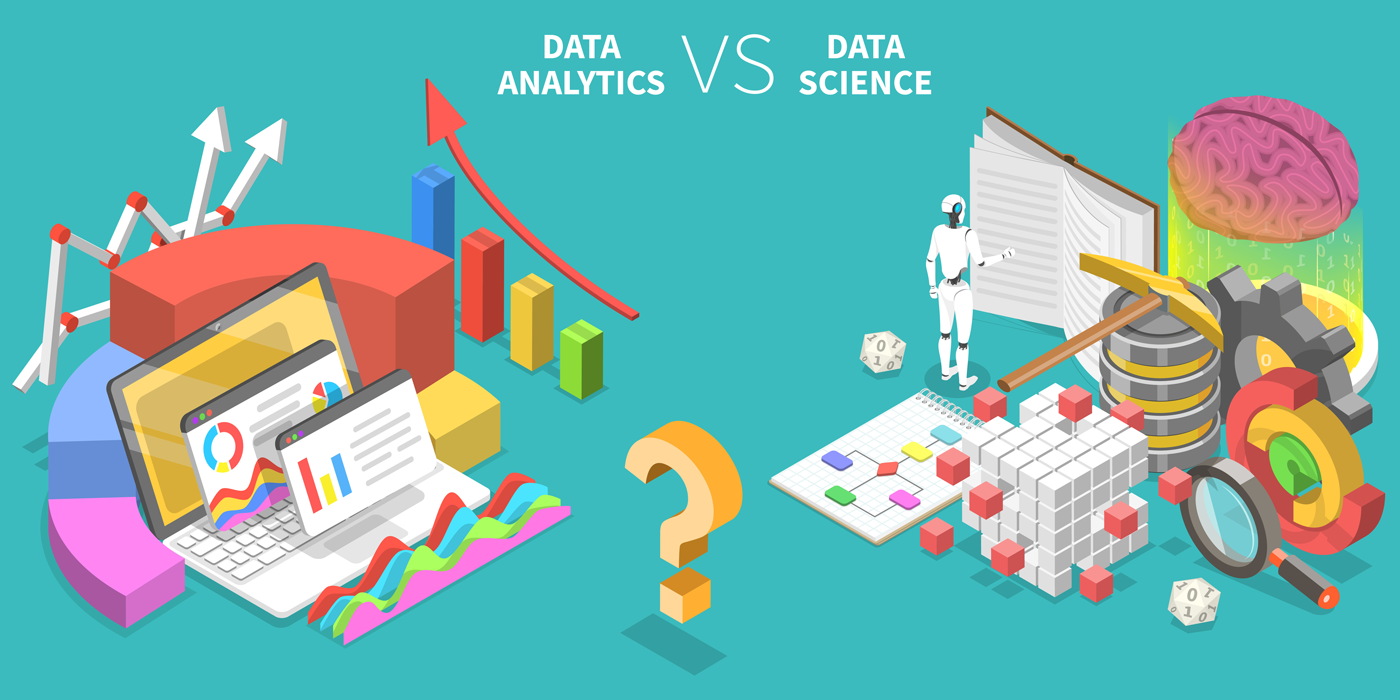Data is increasingly becoming an integral part of decision making for businesses and organizations. With the availability of data, there is an increasing demand for professionals who can process them and derive useful insights. You can divide these professionals into two main categories as data scientists and data analysis. What exactly is the difference between data science and data analytics? From this article, we will explore it in detail.
Defining Data Science and Data Analytics
Data science is an interdisciplinary field that uses scientific methods and algorithms to extract insights and knowledge from structured and unstructured data. Data scientists employ techniques and theories drawn from mathematics, statistics, machine learning, and computer science to solve complex data problems.
Data analytics refers to qualitative and quantitative techniques and processes used to analyze datasets and drive fact-based business decisions. Data analysts examine large data sets to uncover patterns, market trends, customer preferences and other actionable insights that can help organizations optimize processes, improve operations, and support strategic initiatives.
Key Differences
While data scientists and data analysts work closely to solve data-related problems, there are some significant differences in the work they do. Let’s explore them in detail.
· Methods and Techniques
Data scientists use advanced machine learning algorithms and modeling techniques to discover deeper insights. Then they go ahead and make predictions from large, complex datasets. This includes conducting experiments, creating statistical models, and delivering predictive analysis results. A data science course in Chennai will help you to learn how to do it.
Data analysts employ methods like data mining, data visualization, and dashboarding. They also have to work on reporting and business intelligence. With these skills, data analysts can organize, analyze, and translate insights from data to support business decisions. Their analysis is more descriptive and diagnostic in nature.
· Skills and Qualifications
Data scientists need extensive skills in machine learning, coding, mathematics, and statistics. They use these skills to build ML models for tasks like classification and prediction. Their models can also ensure pattern recognition and clustering analysis on big data. Programming languages like Python, R, SQL, and Hadoop are key technical skills. A data science course will teach how to work with these programming languages.
Data analysts require strong analytical abilities and SQL skills for manipulating, processing data and uncovering insights. Excel, Tableau, business intelligence platforms like Power BI and data visualization are important skills. A degree in mathematics, statistics or computer science is common among data scientists whereas data analysts come from more business-focused backgrounds.
· End Goals
The end goal for data scientists is innovation. They try to push the boundaries on extracting maximum predictive power and previously unknown insights from data.
Data analysts aim to support various business functions with in-depth data analysis. Rather than innovation, their primary goal is to enable all levels of an organization to gain intelligence. This helps the managers make better decisions from data using reports, visualizations, and dashboards.
The Blurred Line
The line between data science and data analytics is increasingly getting blurred. Here are some of the prominent areas where you can see an overlapping.
- Using programming languages like Python and R for data manipulation and analysis.
- Leveraging predictive modeling techniques for forecasting and classification tasks.
- Communicating data-driven insights to stakeholders across the business to influence strategic decisions.
Final Words
Now you have a basic understanding of the differences between data science and data analytics. Based on this, you can make the decision to go ahead with following a data science course. If you have an innovative mindset, you should pick the career path to become a data scientist. But if your mindset is more analytical, becoming a data analyst would be the best option available.
BUSINESS DETAILS:
NAME: ExcelR- Data Science, Data Analyst, Business Analyst Course Training Chennai
ADDRESS: 857, Poonamallee High Rd, Kilpauk, Chennai, Tamil Nadu 600010
Phone: 8591364838
Email- enquiry@excelr.com
WORKING HOURS: MON-SAT [10AM-7PM]
